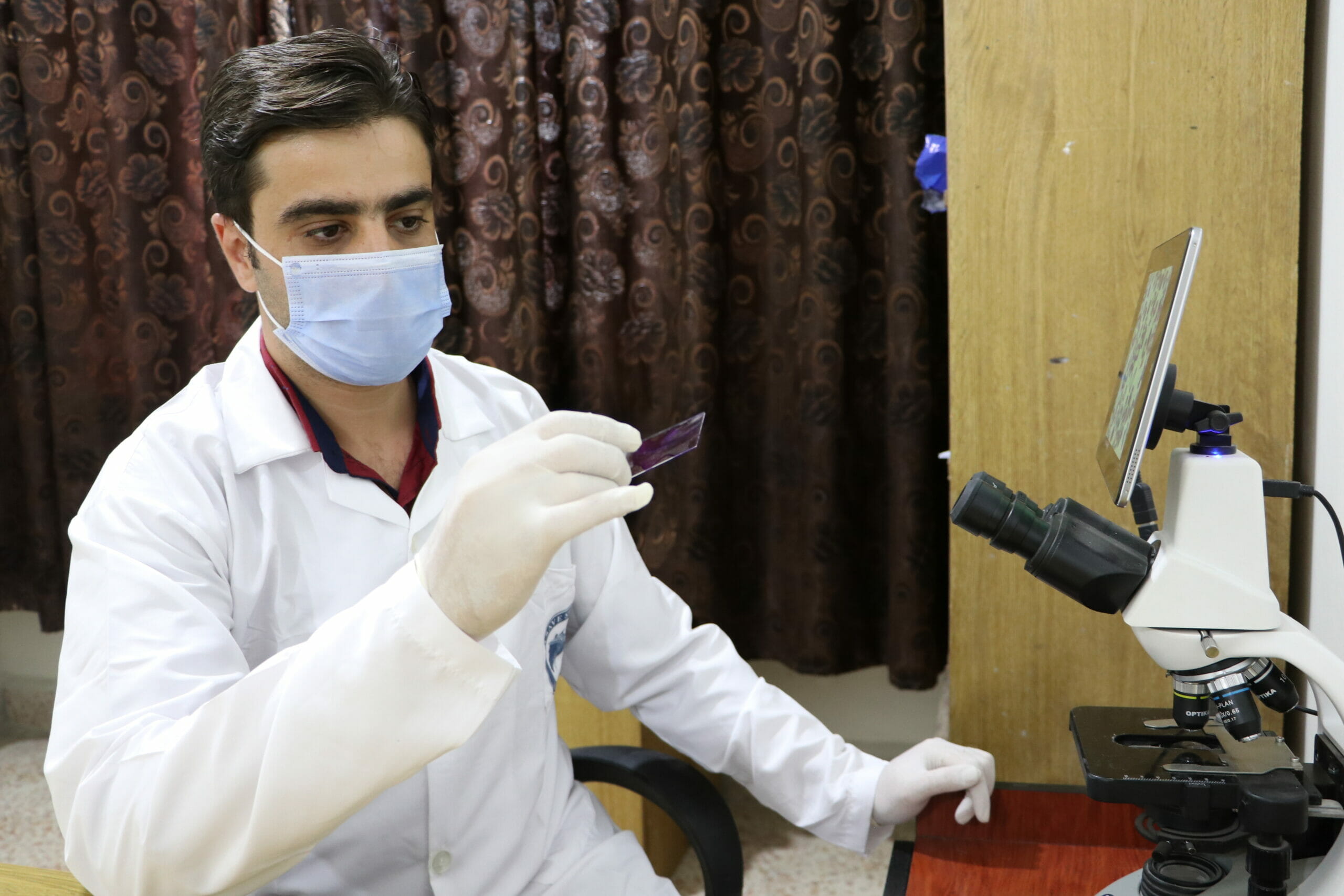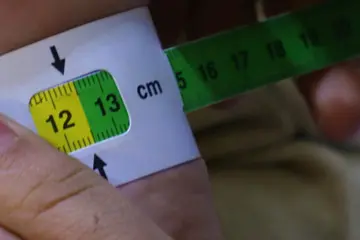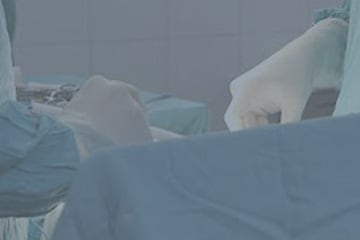October 23, 2020
In recognition of Breast Cancer Awareness Month, we caught up with Dr. Molham Khalil, one of our oncologists in Idlib. In this one-on-one interview, Dr. Khalil shares his story of perseverance and struggle to serve vulnerable populations in Syria, and offers insight on the importance of early detection of breast cancer and how to reduce the risk.
Tell us a little bit about yourself. How long have you been working at the SAMS Oncology Center?
I graduated from The School of Medicine in Damascus in 2012. I began my residency in oncology at the Damascus Hospital in Damascus. However, I faced political persecution when the unrest in Syria began and was not able to continue my education. So, I fled Damascus in October of 2015 and left for Sudan, where I joined the Al-Theera Oncology Center. While in Sudan, I had tried to return to Syria and work there to help those in need. However, all my attempts to return home failed until an opportunity came along to leave for Iraq. I was then able to make it to Idlib from eastern Iraq.
I joined the oncology department at SAMS-supported Idlib Central Hospital on June 1st, 2019, where I finished my residency. I was fortunate to be mentored by highly-skilled oncologists based in the United States. Last month, I obtained my medical license and earned my official board certificate. I’m so thankful for the support I have received from SAMS to be able to fulfill my dreams of becoming an oncologist.
Describe the current situation in northwest Syria in light of the ongoing humanitarian crisis and COVID-19?
Unfortunately, the humanitarian situation in northwest Syria remains dire and the medical needs are immense. The latest estimates put the number of people living in informal IDP settlements at over 70%, about 1.5 million living in these camps lacking the most basic of life necessities. And now with the spike in COVID-19 cases, there are millions of people who are living in a small geographic area with no preventive measures and little public awareness surrounding the pandemic. The conflict over the years has eroded Syria’s healthcare system and Syrians are struggling to access the care they need and make ends meet.
Can you describe a typical working day at the oncology center? Tell us about your patients.
I start my workday at the oncology center where I meet with patients. Some of them have already been diagnosed and referred for appropriate treatment, while others I need to diagnose myself. Some of the patients I see have finished their treatment in Turkish hospitals and now come to the center for regular follow-up appointments and monitoring. After finishing with my patients in the morning, I go to the chemotherapy clinic and check in on my cancer patients there, monitoring their vital signs to make sure that there are no negative side effects from the treatment. At the center, we also perform bone marrow aspiration procedures and biopsies for patients whose condition requires it. After completing my administrative tasks, I follow up with patients receiving extended doses of chemotherapy. I also perform emergency consultations on top of my daily duties.
Tell us about the impact of the SAMS Oncology Center and why this center is very important.
In all honesty, my experience at the SAMS Oncology Center at the Idlib Central Hospital has far exceeded my expectations. It is the only center of its kind that provides these vital services in the area. It is the first and only specialized tumor and cancer treatment center ever to operate in a conflict zone. The whole project has been a great success and we’ve been able to provide treatment to our patients in need free of charge. We have given hope to our patients in desperate situations who otherwise would continue to be left without treatment for their curable diseases.
October is breast cancer awareness month, what would you advise women to do? How are you raising awareness?
October is Breast Cancer Awareness Month (or the “Pink Month,” as we also call it). Its message is extremely important: breast cancer can affect women of all ages. Periodic examinations are required for women over the age of 40 and after 35 for women with a history of breast cancer in their family. These practices contribute to early detection and prevention, leading to treatment and full recovery.
Not every patient diagnosed with breast cancer is faced with a death sentence, as the popular perception often goes. On the contrary, a large portion of these women will be cured of the disease. I disseminate this information and other tips on a daily basis, educating our patients and their families in conjunction with the psychosocial support staff who work with us at the center. I am also active on social media and publish tips there as well.




